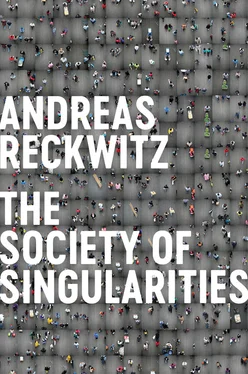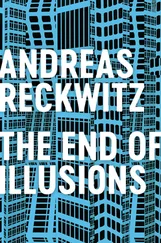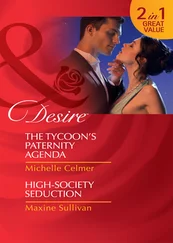Finally, there is the quality of the ludic – of play and the playful. In the medium of play, non-ordinary worlds are realized that follow their own self-imposed sets of rules and open up their own realms of possibility. The spectrum of ludic practices ranges from strictly regulated rituals and competitions to the openly playful and purely exploratory. Every cultural entity creates a world of its own, but those with a pronounced ludic quality involve a world in which a co-player can actively enter and be engaged in events from moment to moment. Games possess an open logic of activity and experimentation that generates a unique sort of tension. They are not burdened by the pragmatics of daily life or rationalized processes. In short, play is the praxis par excellence in which culture demonstrates its ostensibly useless excess in opposition to the rational world. 23It ranges from the individual game object to the playful event and the ludic collective.
Narrative, aesthetic, ethical, creative, and ludic qualities are not inherent to objects, subjects, places, times, and collectives; the latter only gain these qualities within the social logic of singularities, with its valorizations and de-valorizations. Individual entities are instilled with these qualities – or not. On the macro-level, the culturalization of the social thus includes more specific processes for turning social entities into narratives, aestheticizing them, and making them ethical, creative, or ludic. 24
1 See Raymond Williams, Culture and Society, 1780–1950 (London: Chatto & Windus, 1958). 2 For further discussion of these concepts of culture, see Andreas Reckwitz, Die Transformation der Kulturtheorie: Zur Entwicklung eines Theorieprogramms (Weilerwist: Velbrück Wissenschaft, 2000), pp. 64–89. There, however, I espoused the meaning-oriented concept of culture, which no longer seems sufficient to me. 3 In this regard, see Reckwitz, Die Transformation der Kulturtheorie; and Doris Bachmann-Medick, Cultural Turns: New Orientations in the Study of Culture (Berlin: De Gruyter, 2016). This understanding of the cultural is identical with the fourth concept of culture mentioned above, which relates culture to the symbolic and meaningful conditionality of ways of life. 4 The idea that culture exists for its own sake can be traced as far back as Aristotle (praxis versus poiesis). Later, it would be adopted by aesthetic theory and by ethics as well (though in a different way). 5 This classical–normative concept of culture can be found, for instance, in the works of Matthew Arnold and Georg Simmel. See Arnold’s Culture and Anarchy: An Essay in Political and Social Criticism (London: John Murray, 1949); and Simmel’s “The Concept and Tragedy of Culture,” in Simmel on Culture: Selected Writings, ed. David Frisby and Mike Featherstone (London: Sage, 1997), pp. 55–74. For further discussion of this topic, see also Clemens Albrecht, “Die Substantialität bürgerlicher Kultur,” in Bürgerlichkeit ohne Bürgertum: In welchem Land leben wir? ed. Heinz Bude et al. (Munich: W. Fink, 2010), pp. 131–44. 6 For a praxeological understanding of value, see John Dewey, Theory of Valuation (Chicago: University of Illinois Press, 1939). For perspectives from today’s “valuation studies,” see Fabian Muniesa, “A Flank Movement in the Understanding of Valuation,” in Measure and Value, ed. Lisa Adkins and Celia Lury (Oxford: Wiley-Blackwell, 2012), pp. 24–38; and Michel Callon et al., “The Economy of Qualities,” Economy and Society 31 (2002), pp. 194–217. For a cultural-anthropological perspective, see Thompson, Rubbish Theory. Interesting, too, in this regard, is Isabelle Graw, “The Value of the Art Commodity: Twelve Theses on Human Labor, Mimetic Desire, and Aliveness,” ARQ 97 (2017), pp. 130–45. 7 On the ways in which valorization and de-valorization are related to domination and social class, see Skeggs, Class, Self, Culture. 8 This issue pertains to the attention economy, which I will discuss in greater detail in the next Part. Indifference means not paying attention. 9 Regarding serial killers, see David Schmid, Natural Born Celebrities: Serial Killers in American Culture (University of Chicago Press, 2008); on troublemakers, see Dieter Thomä, Troublemakers: A Philosophy of Puer Robustus (Cambridge: Polity, 2019); and, regarding stigma, see Erving Goffman, Stigma: Notes on the Management of Spoiled Identity (New York: Touchstone Press, 1986). 10 See Julia Kristeva, Powers of Horror: An Essay on Abjection (New York: Columbia University Press, 1982). 11 See Alfred Weber, Fundamentals of Culture-Sociology: Social Process, Civilization Process, and Culture-Movement, trans. G. H. Weltner and C. F. Hirshman (New York: Columbia University Press, 1939). Here and elsewhere (in Simmel’s works, for instance), culture is openly associated with vitality, or also with spiritual matters. 12 Of course, this affectivity can be theorized in very different ways, be it psychoanalytically or vitalistically. See, for instance, Massumi’s influential book Parables for the Virtual. 13 See Georges Bataille, The Accursed Share: An Essay on General Economy, trans. Robert Hurley (New York: Zone Books, 1988); and Roger Caillois, Man, Play, and Games, trans. Meyer Barash (Chicago: University of Illinois Press, 2001). In this regard, see also Stephan Moebius, Die Zauberlehrlinge: Soziologiegeschichte des Collège de Sociologie (Konstanz: UVK Verlagsgesellschaft, 2006). According to Rüdiger Safranski, the opposition between rationalization and culturalization was also influential in Nietzsche’s work; see Rüdiger Safranski, Nietzsche: A Philosophical Biography, trans. Shelley Frisch (New York: W. W. Norton, 2002). 14 For a somewhat different understanding of this concept, see Karl H. Hörning, Doing Culture: Neue Positionen zum Verhältnis von Kultur und sozialer Praxis (Bielefeld: Transcript, 2004). 15 Niklas Luhmann’s theory of functional differentiation in modernity, for instance, does not grant any systematic place to culture (a dimension that Talcott Parsons always recognized). 16 On this topic, see Helmut Brackert and Fritz Wefelmeyer, eds., Kultur: Bestimmungen im 20. Jahrhundert (Frankfurt am Main: Suhrkamp, 1990). 17 See Albrecht Koschorke, Fact and Fiction: Elements of a General Theory of Narrative, trans. Joel Golb (Berlin: De Gruyter, 2018); and Vera Nünning and Ansgar Nünning, eds., Erzähltheorie transgenerisch, intermedial, interdisziplinär (Trier: Wissenschaftlicher Verlag, 2002). 18 See Andreas Reckwitz et al., eds., Ästhetik und Gesellschaft: Grundlagentexte aus Soziologie und Kulturwissenschaften (Berlin: Suhrkamp, 2015); Andreas Reckwitz, “Ästhetik und Gesellschaft: Ein analytischer Bezugsrahmen,” in Ästhetik und Gesellschaft, ed. Reckwitz et al., pp. 13–52; and Karlheinz Barck, ed., Aisthesis: Wahrnehmung heute oder Perspektiven einer neuen Ästhetik (Leipzig: Reclam, 1998). 19 To be precise, the ethical quality is related to the narrative quality, the ludic quality is related to the aesthetic quality, and the creative quality is related to both. 20 See Wilhelm Schmid, Philosophie der Lebenskunst: Eine Grundlegung (Frankfurt am Main: Suhrkamp, 2003), pp. 60–70; and Charles Taylor, Sources of the Self: The Making of Modern Identity (Cambridge, MA: Harvard University Press, 1989), pp. 3–110. 21 This does not necessarily have to be the case. The practices of producing singularities can also be undertaken in such a way that no specific value is attributed to them as production practices. 22 “Design” is not a widespread term in cultural theory and the social sciences. See, however, Claudia Mareis, Theorien des Designs zur Einführung (Hamburg: Junius, 2014). 23 See Alfred Schäfer and Christiane Thompson, eds., Spiel (Paderborn: Schöningh, 2014). On the general cultural-theoretical significance of games, see also Michael Hutter, The Rise of the Joyful Economy: Artistic Invention and Economic Growth from Brunelleschi to Murakami (New York: Routledge, 2015). 24 As to which dimension happens to be stronger in a given case, this is an empirical question.
Читать дальше












